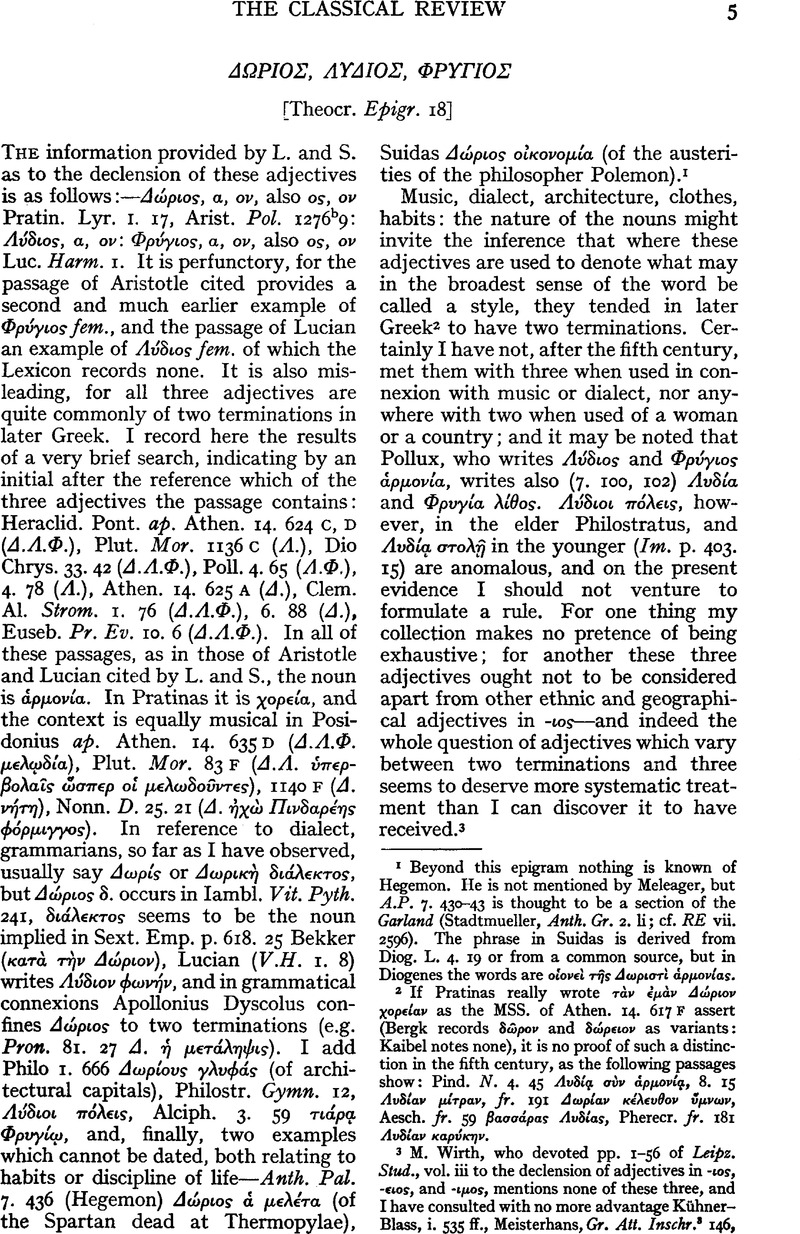No CrossRef data available.
Article contents
Πωρισ, Λυπιοσ Φργιοσ
Published online by Cambridge University Press: 27 October 2009
Abstract

- Type
- Review Article
- Information
- Copyright
- Copyright © The Classical Association 1945
References
page 5 note 1 Beyond this epigram nothing is known of Hegemon. He is not mentioned by Meleager, but A.P. 7. 430–43 is thought to be a section of the Garland (Stadtmueller, Anth. Gr. 2. li; cf. RE vii. 2596). The phrase in Suidas is derived from Diog. L. 4. 19 or from a common source, but in Diogenes the words are ![]() .
.
page 5 note 2 If Pratinas really wrote ![]() as the MSS. of Athen. 14. 617 F assert (Bergk records δρον and δώρειον as variants: Kaibel notes none), it is no proof of such a distinction in the fifth century, as the following passages show: Pind. N. 4. 45
as the MSS. of Athen. 14. 617 F assert (Bergk records δρον and δώρειον as variants: Kaibel notes none), it is no proof of such a distinction in the fifth century, as the following passages show: Pind. N. 4. 45 ![]() 8. 15
8. 15 ![]() , fr. 191
, fr. 191 ![]() , Aesch. fr. 59 βασσάρας, λνδίας Pherecr. fr. 181.
, Aesch. fr. 59 βασσάρας, λνδίας Pherecr. fr. 181.![]() .
.
page 5 note 3 Wirth, M., who devoted pp. 1–56 of LeipzGoogle Scholar. Stud., vol. iii to the declension of adjectives in ιος,ειος, and -ιμος, mentions none of these three, and I have consulted with no more advantage Kühner Blass, i. 535 ff., Meisterhans, , Gr. Alt. Inschr.3146Google Scholar, Lobeck, Phryn., p. 105, and on Soph. Aj. 224, Ztschrup. f. öst. Gymn. xxvii. 801, Ztschr. f. Gymnasiahv. xvi Jahresb. 198, xx Jakresb. 31.
page 6 note 1 I cannot accept Edmonds's rendering ‘The speech is the Dorian, and the theme is the inventor of comedy’. The point is that the Dorian dialect is used because the subject also is Dorian.




